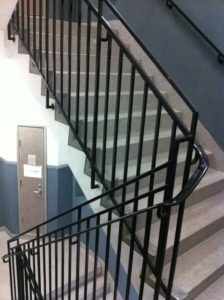The benefits of exercise and being fit keeps growing. From Medical Daily:
Physical Fitness In Your 20s Can Help Preserve Your Thinking Skills Later On In Life
If you need some motivation to get up off the couch and in your running shoes than how about this; a new study has proved that those who are fitter in their 20s are sharper thinkers in their middle age. So not only does exercise improve your health, slim your waistline, and lift your mood, but apparently it can also make you smarter.
The study was carried out by researchers at the University of California, San Francisco. It started in 1985 and was conducted on nearly 3,000 19- to 30-year-olds in the U.S. The participants were asked to do a treadmill test and undergo physical examinations. They were asked to run for as long as they could without becoming exhausted or short of breath, according to the BBC. Then, 20 years later, the participants agreed to repeat the physical test. Five years after the second physical exam the participants underwent brain testing. These included a word recall test, a number-based test of attention, thinking speed and memory, and a test of how well people can focus while tuning out distractions. Results showed that the better people did on the treadmill test 20 years earlier, the better they did on the memory test. Also, those who had kept up their fitness later on in life scored the best overall in the memory tests. The researchers took into account factors such as weight, sex, drinking, smoking, and education. Still, those who did better on the treadmill test seemed to do better on the memory tests years later.
The reasoning for this is that the brain uses a lot of oxygen and people who are fitter make more efficient use of oxygen. Also, exercise improves mitochondrial function, which is necessary in making use of energy. It is emphasized that this increase in brain function cannot be attributed to exercise alone. People who are physically fit are less likely to be sat in front of a television and more likely to interact with people and be engaged in life. “Just moving around — being engaged in family and life as opposed to sitting down and watching TV and pretty much not doing anything, they are going to preserve brain function. This is really about engagement in life,” lead researcher David Jacobs told NBC News. The study will continue by observing whether physical fitness in youth makes individuals less likely to develop Alzheimer’s disease later on in life. “Investment in research is vital to better understand how we can protect our brains as we age,” Jacobs concluded.
This research also ties in with another study released this week that showed young adults who had better heart health, as measured by blood pressure, have better thinking skills in middle age than those with high blood pressure.
 Doctors now have an easy test for determining your heart health, according to European researchers. Anyone can take the test - just need access to staircases and wear comfortable sneakers or shoes. The test: time it takes to climb 4 flights of stairs or 60 steps.
Doctors now have an easy test for determining your heart health, according to European researchers. Anyone can take the test - just need access to staircases and wear comfortable sneakers or shoes. The test: time it takes to climb 4 flights of stairs or 60 steps.